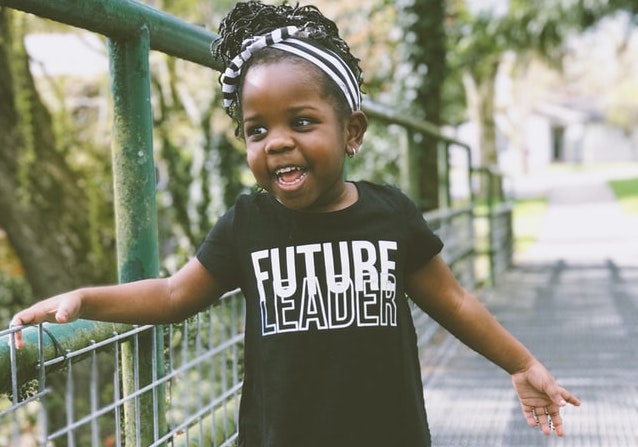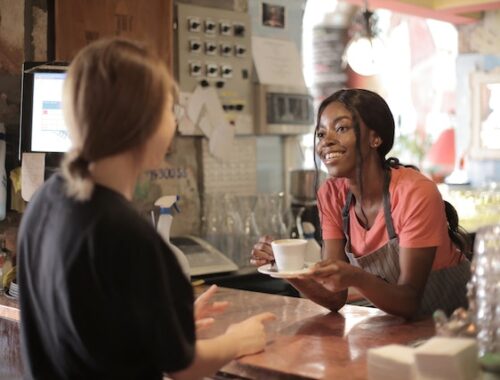A developmental milestone is a term used to describe the major developmental tasks that most children will learn to master during their first five years of life. The important thing about these expected milestones is not how fast your child reaches them but rather how much they improve on current milestones at each phase.
Let’s take a look at some of these milestones:
1. They’re crawling
Crawling is a very important milestone. It lets them explore the world from a different angle, and it helps them learn about muscles and coordination. Place toys on both sides of a narrow doorway, so they have to crawl through to get to them.
2. They can stand up all by themselves
By this time, your child has been learning how to balance for a while now, so having control over standing up will be natural. They might even take their first steps soon! The best thing you can do for your child is help him develop his strength and balance by giving him plenty of opportunities to pull himself up against furniture or other stable objects. This will provide support as he/she stands up.
3. They can walk forwards and backward
By now, your child will be able to walk in a straight line, forward or backward. But they might be a little unsteady on their feet when walking! Some babies will even take off soon after mastering the basics of taking steps. In order for them to develop safely, be sure that they have adult supervision at all times when they’re up and about. With one final push from you, your baby will learn how to walk without any help!
4. They understand “No.”
This is an important milestone – once your child becomes aware that ‘no’ means something, it’s easier to discipline them (and by this time, they should be deserving of some discipline!). Your job is to make sure your child understands the meaning of ‘no’ through limits, boundaries, and consistency.
You can also teach them how to say ‘no.’ It’s fun for them to learn new words! Teach them by saying “No” very firmly yourself when they’re doing something dangerous or inappropriate. After a few times, your baby will pick up on it – sometimes they’ll even remember after you’ve said it once!
5. They respond to familiar people
As your child becomes more aware of his surroundings, people who he knows will catch his attention. Your child is now more likely to respond when you say their name – sometimes they’ll even wave at strangers!
This is a great time to teach the concept of “stranger danger.” Kids this age know that it’s not safe to go with strangers, so be sure to remind them of these important people: family members, trusted relatives and friends, police officers, teachers, doctors, and other authorities. This will make it easier when they need to visit the dentist or, for example, an audiologist to discuss hearing loss and hearing aids.
As your child becomes more aware of the world around him, introducing new concepts will become easier. Teaching your kids how to interact with others will help protect them from making poor decisions as they get older.
6. They can blow bubbles
Blowing bubbles is an exciting new skill for young toddlers! Blowing bubbles is a good way to encourage them to use their upper lip muscles, which they will need for eating solid foods. You can even make blowing bubbles more fun by adding soap to the mixture.
7. They know the difference between fantasy and reality
By now, kids understand that fantasy is not real and that just because it might be possible doesn’t mean that it ever could happen. Your child will now spend less time watching TV or playing games where fantasy comes into play and limit those activities as they become older.
8. They imitate your emotions
Kids this age are beginning to learn how to show empathy towards others by imitating their emotions. When you’re experiencing an emotion such as sadness, anger, or happiness, your child will try to mimic it. This is an important skill for their social development! Kids this age don’t yet understand why they feel certain ways, but that’s okay – just be sure to talk them through what you feel when the time comes.
9. They develop realistic expectations
Most toddlers are starting to develop an awareness of themselves and how they fit into the world around them. By the time they reach two years old, kids should have a somewhat realistic idea of what life has in store for them. Young kids might expect things like getting their own room or receiving presents on every holiday – later on; they’ll learn more about the real world and adjust their expectations accordingly!
10. They talk about their likes and dislikes
Kids this age are starting to develop an awareness of themselves and what makes them happy or sad. You might find that your child will bring you a book because he knows you like reading – or refuse to play with a certain toy because he doesn’t like how it feels.
In Conclsuion
Encourage your child’s development by talking about your own feelings with them. If they cry when something bad happens, explain why you feel upset too! It’s never too early to start teaching empathy to kids – the earlier they learn how other people feel, the better!




